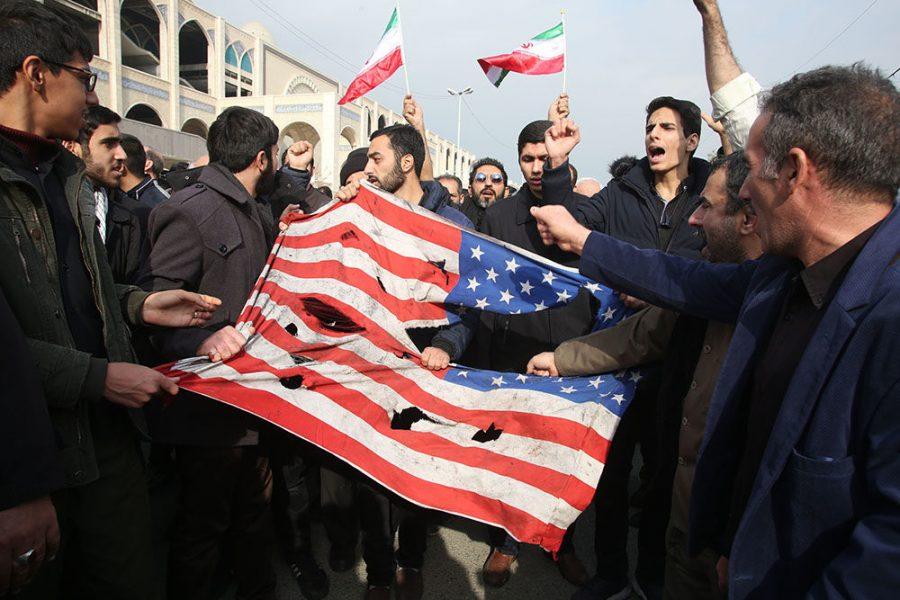Emily Vanek
Co Editor-in-Chief
“I pay more attention to the news when Iran is in the picture,” said Sepi Nazarian ‘20, one of the many Persian-American students in the Milken community. If you live in Los Angeles, you likely know that it contains a sizable Persian-Jewish community. Milken, in particular, is no exception. I, myself, am included in that group as my mother is originally from Iran.
Ever since the monarchy of Iran was destroyed as a result of the Islamic Revolution in 1979, Persian Jews haven’t been safe in their native country. Because of this, many fled their homeland in the midst of confusion, terror, and turmoil to seek refuge in the United States.
In recent years, the U.S. and Iran have not been on good terms as the Islamic regime continues to build nuclear power, fund terrorism, and threaten the intellectual and religious freedom of the world. The citizens of Iran are now protesting its government, begging for freedom from its oppression. Due to these continuous threats, the United States, along with many of its allies, negotiated an agreement with Iran in 2013 to limit Iran’s ability to produce a nuclear weapon. However, in exchange, the U.S. removed various sanctions imposed on the country.
The Iran Nuclear Deal was and still is extremely controversial on both sides of the political spectrum. However, in May 2018, President Donald Trump announced that the U.S. would be pulling out of the deal and introducing fresh sanctions against Iran.
Controversy sparked again recently when Trump ordered U.S. troops to murder Iranian general, Qasem Soleimani, the leader of Iran’s terrorist forces. Ever since, social media has “blown up” with fears of “World War III.” Many people, of various race and ethnicity, have shared feelings of mixed emotions across social media, with some making apology posts towards Iran entitled “Dear Iran” in hopes that they won’t attack the U.S. Others are confused as to why some are against the murder of a terrorist. Our community, being a large percentage Persian, has been directly impacted by the recent controversy: the campus is flooded with conversation, debates, with students referencing their Persian parents for credibility.
Having a Persian mother, I felt it was obligatory to ask my mother’s opinion about the entire situation: “I don’t feel any connection to my homeland anymore and I definitely don’t understand why people are apologizing to an oppressive regime that wouldn’t allow them to lead the lives they do today. That being said, I pray and hope for the wellbeing of the citizens who are suffering. As of now, I don’t want to go back there.” I was frustrated by her response, as I definitely expected her to feel more deeply towards the issue. But, I started to understand her as she was once a young girl fleeing a country that wanted her dead, and it’s difficult for her to visualize any change happening soon.
As the daughter of an Iranian immigrant, I feel personally connected to the news surrounding Iran. Every time I hear of news surrounding the country, I remember the stories my mother told me about the small, safe, and friendly town she grew up in and I mourn it for her. I think about how it’s the land where she buried her father at 13, but never received a chance to place the flowers by his gravesite. I think about the Magnolia tree outside her old home, which she said produced flowers larger than she’s ever seen in America. Recently, however, it’s become more difficult for her to recall those memories, which she credits to old age, but I also believe it’s due to her suppressing feelings of pain and anger towards the circumstances that the world has faced.
After realizing this, I was curious for more opinions from Iranians. Would they feel any different about the U.S. attacking Iran compared to any other country? Do they want to go back to their country? Are they hoping for a specific outcome?
I decided to ask other members of my community, relatives, and friends about their opinions. I found a common factor with everyone I talked to: they all agreed that Iran’s Islamic regime and the Ayatollah need to be disbanded immediately whether that be through violence or not. My friend’s father, Hooshang Nazarian, admitted that he still feels a connection to his country: “I hope that I can go back there again, but only when the Ayatollah is gone.”
As a teenager in America with no power on the matter except for my freedom to speak on it, I hope for there to be a day when my mother and I can visit a peaceful and free Iran, see the giant Magnolia flowers, and place them by her father’s grave.



